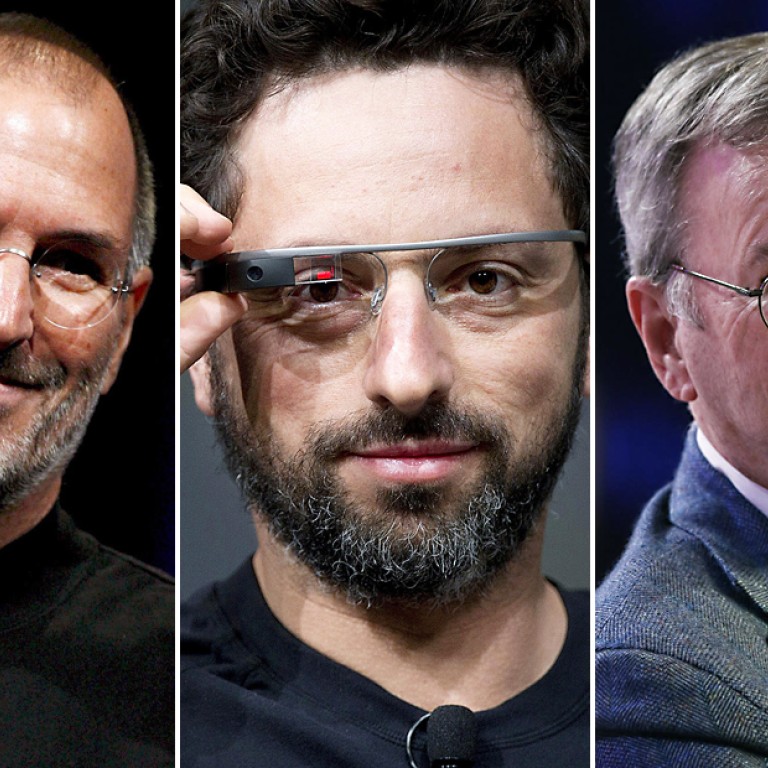
Apple and Google among tech giants who settle case over alleged plot to hold down Silicon Valley salaries
Payout of US$324m agreed after claims that late Apple chief Steve Jobs was among bosses who backed no-poaching pact to hold down salaries
Four major technology companies including Apple and Google have agreed to pay a total of US$324 million to settle a lawsuit accusing late Apple boss Steve Jobs and others of conspiring to hold down salaries in Silicon Valley.

They were planning to ask for US$3 billion in damages at a trial that was scheduled to begin in just weeks, according to court filings. That could have tripled to US$9 billion under antitrust law.
The case has been closely watched due to the potentially high damages award and the opportunity to peek into the world of Silicon Valley's elite.
The case was based largely on e-mails in which Apple's co-founder Jobs, former Google CEO Eric Schmidt and some of their Silicon Valley rivals hatched plans to avoid poaching each other's prized engineers.
Jobs allegedly told Google co-founder Sergey Brin, during a conversation described by Brin: "If you hire a single one of these people that means war."
In one e-mail exchange after a Google recruiter solicited an Apple employee, Schmidt told Jobs that the recruiter would be fired, court documents show.
Jobs forwarded Schmidt's note to an Apple human resources executive with a smiley face.
Another exchange shows Google's human resources director asking Schmidt about sharing its no-cold-call agreements with competitors. Schmidt, now the company's executive chairman, advised discretion.
"Schmidt responded that he preferred it be shared 'verbally, since I don't want to create a paper trail over which we can be sued later?'" he said, according to a court filing. The HR director agreed.
The companies acknowledged entering into some no-hire agreements, but disputed the allegation that they had conspired to drive down wages. Moreover, they argued that the employees should not be allowed to sue as a group.
Rich Gray, a Silicon Valley antitrust expert in private practice, said the companies had an incentive to avoid trial because their executives' e-mails would make them look extremely unsympathetic to a jury.
The trial had been scheduled to begin at the end of next month on behalf of 64,000 workers.
Apple, Google and Intel declined to comment.
An Adobe representative said the company denied it engaged in any wrongdoing, but settled "to avoid the uncertainties, cost and distraction of litigation".
An attorney for the plaintiffs, Kelly Dermody of Lieff Cabraser Heimann & Bernstein, said in a statement the deal was "an excellent resolution". Corporate defendants in antitrust cases often agree among themselves what portion each will contribute towards a settlement, said Daniel Crane, a professor at the University of Michigan Law School.
One likely formula would be to divide the damages based on how many employees each company has in the class, he said.
Apple, Google, Adobe and Intel in 2010 settled a US Department of Justice probe by agreeing not to enter into such no-hire deals in the future.
The four companies had since been fighting the civil antitrust class action.
Walt Disney's Pixar and Lucasfilm units and Intuit had already agreed a settlement in the case, with Disney paying about US$9 million and Intuit paying US$11 million.
A hearing on the final approval of the Intuit and Disney deals is scheduled for next week.

